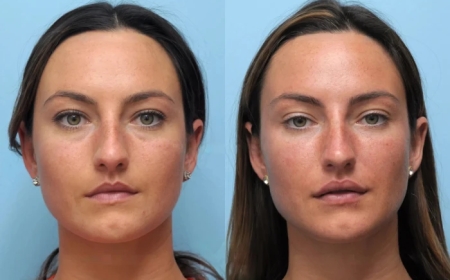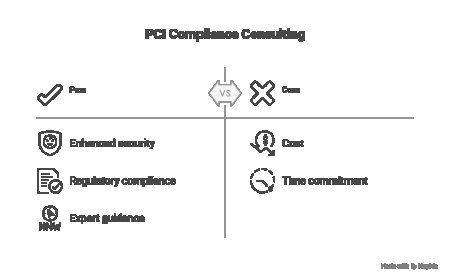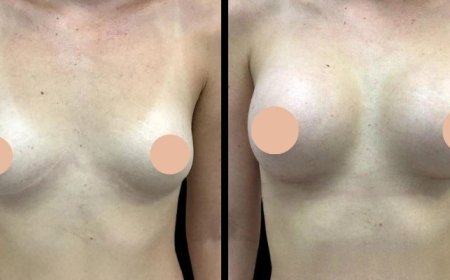Can Massage Help Regulate Hormones and Mood Swings?
Discover how massage therapy can help regulate hormones like cortisol, oxytocin, serotonin, and dopamine. Learn its role in mood stabilization and emotional balance.

Hormonal fluctuations often underlie mood changes, energy dips, sleep disruptions, and general emotional imbalance. These hormonal shifts can be a result of natural life stages such as menstruation, menopause, or stress or chronic issues like anxiety and fatigue. As a holistic therapy, massage has been studied for its potential influence on the endocrine system, especially in managing stress-related imbalances. But which hormones are influenced by massage therapy, and how does this affect emotional well-being?
Understanding Hormones and Their Connection to Mood
The endocrine system, which creates and controls the hormones that affect mood, energy levels, sleep patterns, and even social bonds, delicately governs how the human body functions. Anxiety, emotional exhaustion, mood swings, and irritability can all be symptoms of poor hormone balance. When regularly administered, massage treatment seems to help regulate this internal chemical environment.
Within the first few sessions, massage has been associated with reductions in cortisol levels, the bodys primary stress hormone. Elevated cortisol over time is known to impair emotional regulation and disrupt sleep, digestion, and immune response. Lowering this hormone may help bring about a sense of calm and clarity.
It is also thought that massage increases the release of oxytocin, which is sometimes called the "bonding hormone." Emotional connection, safety, and trust are all bolstered by oxytocin. This hormone reaction may aid in emotional balance for people who experience mood swings or increased emotional sensitivity.
For individuals searching for holistic options to support mood balance, visiting a Spa in Chennai may provide access to professionals trained in therapies that aim to ease emotional tension and regulate stress-related imbalances.
Hormonal Effects of Massage Therapy
Research indicates that regular massage sessions may trigger beneficial changes in several mood-related neurohormones. Along with lowering cortisol and encouraging oxytocin, massage can assist in the regulation of dopamine and boost serotonin. Dopamine is essential for motivation, focus, and reward-driven behavior, while serotonin plays a major role in emotional stability and sleep regulation.
The interplay between these hormones influences how one processes emotional highs and lows. When massage reduces stress hormones while enhancing pleasure and comfort chemicals, it creates a physiological environment conducive to mood stabilization. These effects are especially valuable for individuals experiencing emotional volatility due to hormonal shifts, such as during PMS, perimenopause, or chronic anxiety.
Hormonal benefits appear to be cumulative. While a single session might induce temporary calm, consistent therapy over time supports more lasting endocrine system support. The body begins to learn relaxation, allowing hormonal responses to shift more easily toward balance.
Emotional Balance Through Physical Touch
Touch is central to the effectiveness of massage. Unlike medication or talk therapy, massage works directly through the body to reach the nervous and endocrine systems. This physical approach allows for immediate signals to be sent through the skin and muscles to the brain, influencing both emotional and hormonal pathways.
By using slow, repetitive strokes that activate the parasympathetic nervous system, certain massage techniques, like Swedish or aromatherapy massage, can intensify these benefits even further. In addition to promoting relaxation, this enables the brain to enhance emotional resilience and lessen reactive stress signals.
Individuals seeking long-term relief from emotional fluctuations may find value in establishing a consistent therapy routine at a qualified Spa in Velachery, where bodywork is used not only for muscle relief but for hormonal and emotional recalibration as well.
The Role of Massage in Supporting Emotional Equilibrium
Beyond the scientific mechanisms, massage provides an environment where the body can rest deeply, often for the first time in days or weeks. This rest is vital to recovery, especially in those experiencing hormonal shifts that cause irritability or fatigue.
The act of pausing, lying still, and receiving intentional care can itself lead to better emotional balance. As the body softens, the nervous system enters a more stable mode, which may promote more predictable hormonal activity. Over time, this contributes to emotional equilibrium, where mood swings become less sharp and recovery from emotional stress becomes faster.
Importantly, massage does not artificially force hormonal changes. Instead, it supports the bodys innate capacity to regulate itself, aligning with the broader goals of natural wellness.
Integrating Massage Into a Hormone-Supportive Lifestyle
For those navigating mood swings, especially linked to hormonal imbalance, massage is best used as part of a broader self-care strategy. Movement, nutrition, rest, and therapy all play interconnected roles. Massage complements these elements by offering direct, physical support to the endocrine system.
It also serves as a bridge between physical and emotional care offering the benefits of both without requiring significant mental effort from the individual. This can be particularly comforting for those who find talk-based therapies emotionally taxing or who struggle with consistent sleep and recovery.
Facilities such as Spa in Anna Nagar may include wellness environments designed to reduce sensory stress, with calming lighting, aromas, and trained therapists who understand how bodywork can support mental and emotional health.
A Balanced Approach to Mood and Hormones
While massage therapy is not a cure for hormonal disorders or psychiatric conditions, it does present a compelling tool in the realm of natural mood management. Through its gentle support of the bodys own hormonal rhythms particularly its impact on cortisol levels, oxytocin release, dopamine regulation, and serotonin boost massage helps lay a physiological foundation for greater emotional balance.
Le Bliss Spa, known for integrating body and mind wellness through skilled therapy, offers an example of how massage can fit into a thoughtful approach to hormone health. Whether used as part of a long-term plan or as a consistent calming ritual, massage has earned its place among complementary approaches to mood stabilization and hormone support.
Ultimately, it reminds us that sometimes, the body already knows what it needs to return to balance and it often begins with touch.



































